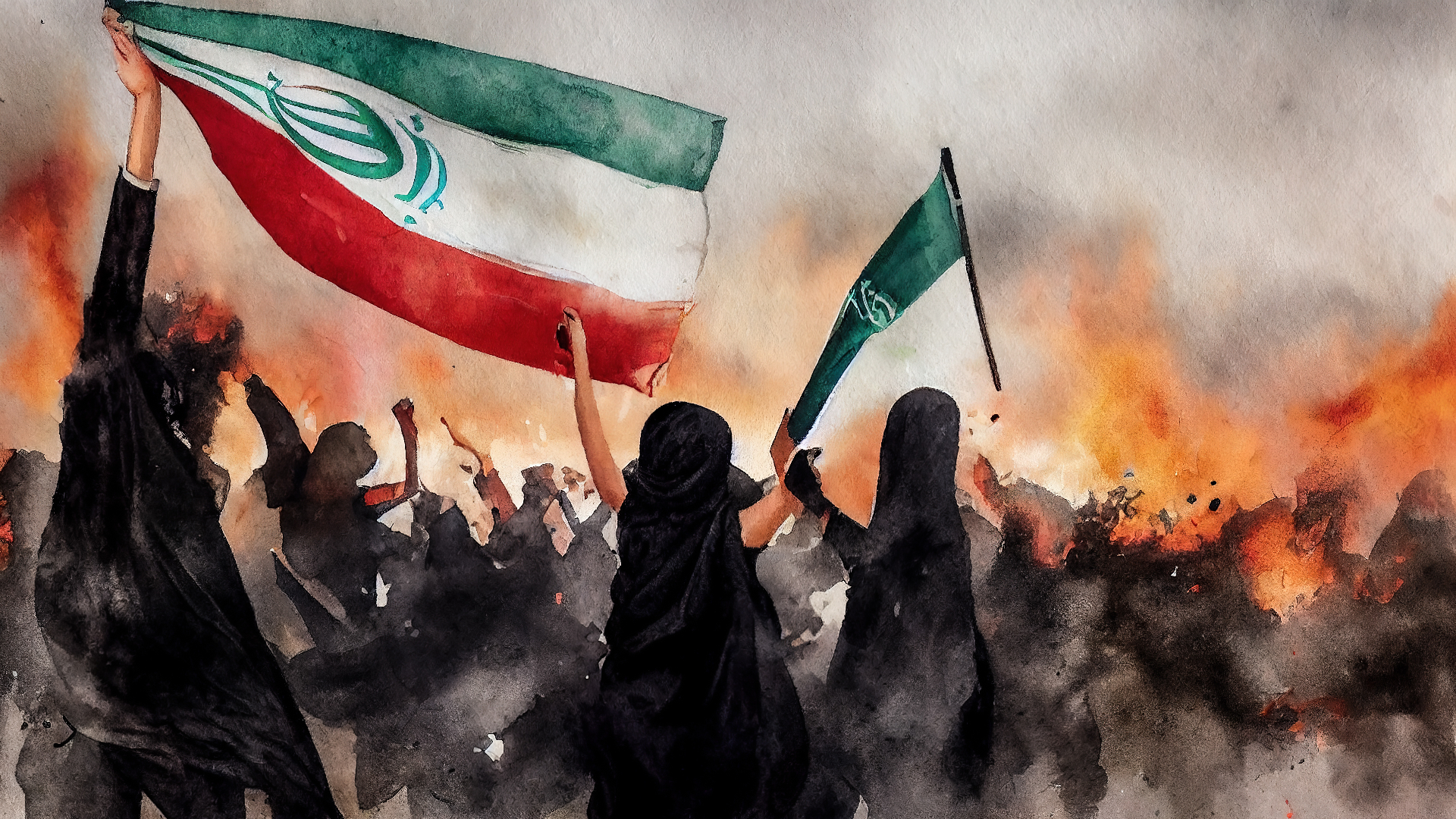Can you imagine living in a country where your government can kill you for not following a state-imposed dress code; or jail you for ten years for sharing a video of yourself dancing with your fiance; or kidnap you for daring to speak your mind?
Iranians live in such a place. And the Iranian regime’s now-normal response to the ongoing country-wide protests demanding an end to the theocracy includes killing sprees and abductions.
These protests began last September in response to the killing of Mahsa Amini at the hands of Iran’s so-called “morality police.” The twenty-two-year-old was murdered because she wore her hijab “improperly.” Now, seven months later, the Iranian people still take to the streets to express their resentment toward the regime.
This is merely the latest wave of anger against the theocratic regime of Iran that violently came to power in 1979 following the Iranian Revolution. Time and again, this and other Islamic regimes have shown how dangerous political regimes are — especially when they can brand their rights violations as religious devotion.
Islam holds that sharia law, derived from the Quran and Hadiths, must be the guiding principle of the state, and Islamic fundamentalists advocate exactly that. They differ in their specific policy recommendations, ranging from combining sharia-based law with democratic institutions to establishing a global caliphate with one government ruling the world. But despite their differences, Islamic fundamentalists tend to agree that sharia law should be an integral foundation for government.
For example, consider fundamentalist activists at prestigious Indonesian campuses such as Universitas Indonesia and Bandung Institute of Technology, of whom I know several.
Most of them hold that women should not pursue careers but should instead stay at home, that the government should ban alcohol, and that homosexuality should be a crime.
Although not all Muslims directly push to violate individual rights, some do — and they often leverage democratic institutions to enact rights-violating, sharia-based laws, which violate freedom of expression by outlawing blasphemy, mandating that women wear hijabs, and banning books.
In addition, they often seek to restrict economic freedom by forcing financial institutions to comply with sharia law. For instance, the Quran teaches that “Those who consume interest will stand on Judgment Day like those driven to madness by Satan’s touch. . . . Allah has permitted trading and forbidden interest.”
To see how fundamentalist Muslims leverage democratic institutions, look at Egypt. When Egyptians toppled Hosni Mubarak’s regime during the Arab Spring, they elected Mohamed Morsi as president and made the Muslim Brotherhood the ruling party. Shortly thereafter, the new government wrote a new constitution, making sharia law the primary source of legislation. Thousands of Coptic Christians fled the country as the violence against them—especially church burnings—became more frequent and police did nothing to stop the mobs.
But an Islamic party doesn’t necessarily need to win elections to impact a country’s direction. In Indonesia, between 2004 and 2009, Islamist parties (both radical and moderate) won roughly 22 percent of total seats. Yet their members successfully convinced secular and nationalist parties to ban pornography in the country, and they further violated individual rights by using the Ministry of Informatics to censor websites such as Reddit and Vimeo in 2014.
Whereas some groups, such as the Muslim Brotherhood in Egypt, try to institute sharia law by passing new legislation, many employ violence. Today, examples include the regimes in Iran, Afghanistan, Qatar, and Saudi Arabia. Regimes in those countries actively subjugate and terrorize citizens into complying with a strict application of sharia law.
Perhaps the most extreme example is the Islamic State (IS, aka ISIS, ISIL, and Daesh), which aims to establish a global caliphate. Toward that end, IS has committed numerous terrorist attacks around the globe, including the massacre at Charlie Hebdo offices in Paris, the bombing of Manchester Arena, and countless atrocities in Syria and Iraq.
The trend is clear: fundamentalist Islam, as commandeered by political regimes to fit their agendas, demands the violation of individual rights. And on the behalf of those regimes, fundamentalist citizens can be persuaded to commit atrocities that violate the rights of others.
So, if we care about protecting individual rights, we must strike a delicate balance: We must of course respect those who practice the Islamic religion peacefully while remaining on guard against its use as a political weapon.
Are you looking for an opportunity to gain new insights about the ideas of liberty and network with like-minded individuals? Students For Liberty’s upcoming LibertyCon International, held in Washington, D.C. on February 2-4, 2024 is an event you won’t want to miss!
LibertyCon International offers an opportunity to engage with top experts, scholars, and entrepreneurs from a variety of fields while providing a platform for attendees to connect with others who are dedicated to advancing pro-liberty ideas and creating a freer future.
Click on the button below to sign up for updates and secure your spot at this exciting event. We can’t wait to see you there!
This piece solely expresses the opinion of the author and not necessarily the organization as a whole. Students For Liberty is committed to facilitating a broad dialogue for liberty, representing a variety of opinions.



